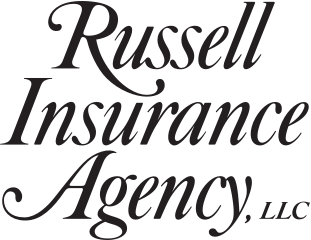Negligent entrustment is a type of liability that occurs when you allow (or entrust) an employee to use an item or a machine that could cause harm and that you know they aren’t qualified to operate. If they cause an accident, it could be your problem.
If you should have known, insurance probably won’t pay
Insurance companies don’t usually cover claims caused by negligent entrustment because employers must act with care of duty, including due diligence. Insurance companies may consider their disregard as intentional negligence and deny the claim.
If there’s any question about whether someone is qualified to operate a machine you own, don’t let them. Claiming you didn’t know an employee was incompetent isn’t an effective defense with an insurance company or a court.
Nuclear verdicts are on the rise
Lawyers are more willing to hold out for trials than settle — and they’re winning. Jury verdicts worth $10 million or more (aka “nuclear verdicts”) are more widespread than in years past. According to the U.S. Chamber of Commerce Institute for Legal Reform, the median nuclear verdict was $25 million in 2019. Nearly 23% of the cases involved auto accidents.
Most businesses don’t recover from nuclear verdicts.
Jobs with increased exposure
Typically, jobs involving heavy machinery or equipment have the most significant risk for negligent entrustment claims. They include:
- Commercial truck drivers
- Valets
- Delivery persons
- Employees who drive personal or company-owned vehicles for work purposes
- Heavy machinery or equipment operators
- Construction workers
- Police officers
- Security personnel
- Gun shop employees
You can also be held responsible for contractors, subcontractors, volunteers and even family members of employees. These nontraditional workers can pose unique challenges in negligent entrustment claims, so you should vet them like paid employees. Otherwise, limit their access to machinery to reduce the chance of accidents.
A word on firearms and weapons
Improper sale or gifting of firearms and other deadly weapons is a growing risk area for negligent entrustment. Always run background checks, follow state laws and keep weapons out of the hands of unlicensed, reckless or inexperienced individuals.
Negligent entrustment examples
Here are a few examples of negligent entrustment:
- An employer allows an employee with a suspended license to drive a company-owned vehicle. The employee gets into an accident. The employer is liable because they should have checked the employee’s driver’s license in accordance with their driver policies and procedures.
- A loading dock is short one operator and falling behind on deliveries. The shift supervisor allows one of the loaders to operate a forklift without having the required certification. The uncertified driver crashes into a stack of pallets, crushing a worker to death. The supervisor should not have allowed an uncertified driver to operate a forklift.
- An employer keeps a handgun behind the counter in an unlocked compartment. He tells the staff to use it for protection. While two employees are engaged in horseplay involving the gun, one accidentally discharges the weapon, injuring a bystander. The employer is liable for entrusting the unqualified employees with an unsecured gun.
What’s involved in a negligent entrustment claim?
For a negligent entrustment claim to be valid, the following must be true:
- The employer gave the machinery to the employee to use.
- The employee acted recklessly or was incompetent or unqualified to operate the item or machine.
- The employer knew or should have known the employee was incompetent, unqualified or reckless.
- The employee was careless in the operation of the machinery.
- The employee’s negligent use of the machinery resulted in physical injury or property damage.
Vicarious liability versus negligent entrustment
A lawyer might use one or both of the following standards to meet the legal threshold in a liability lawsuit against you and your employee:
Vicarious liability focuses more on the employee’s conduct during work hours while under the employer’s direct authorization or supervision.
Negligent entrustment is when an employer allows employees to use something they aren’t qualified to use or operate, like a gun or machine.
Lawyers will use business records in court, such as:
- Driver and fleet telematics data
- Training programs
- Motor vehicle records
- Employee manuals and policies
- Employment verification processes
- Health exams and physicals, if required by law
- License verifications
- Drug and alcohol screenings
- Criminal histories
Standardized procedures for hiring and onboarding employees, volunteers and contractors are critical to being perceived as a responsible employer.
The importance of work agreements, certifications and standards
Maintaining solid workplace protocols is the best way to stay ahead of scrutiny. Remain vigilant about employment practices, such as:
- Preemployment background checks
- Employee manuals, including codes of conduct
- Occupational safety and health training programs
- Government compliance standards
- Certification and licensing requirements
- Scheduled training and recertification programs
- Written policies
- Employee agreements and operational checklists
- Quarterly safety evaluations
- Toolbox talks and on-the-job safety audits
- Incident and near-miss investigations
Consult with an attorney if you’re concerned about exposure to negligent entrustment risks in your business operations. They can help you improve your employment practices. And your insurance agent will be happy to answer questions about your liability coverage.

